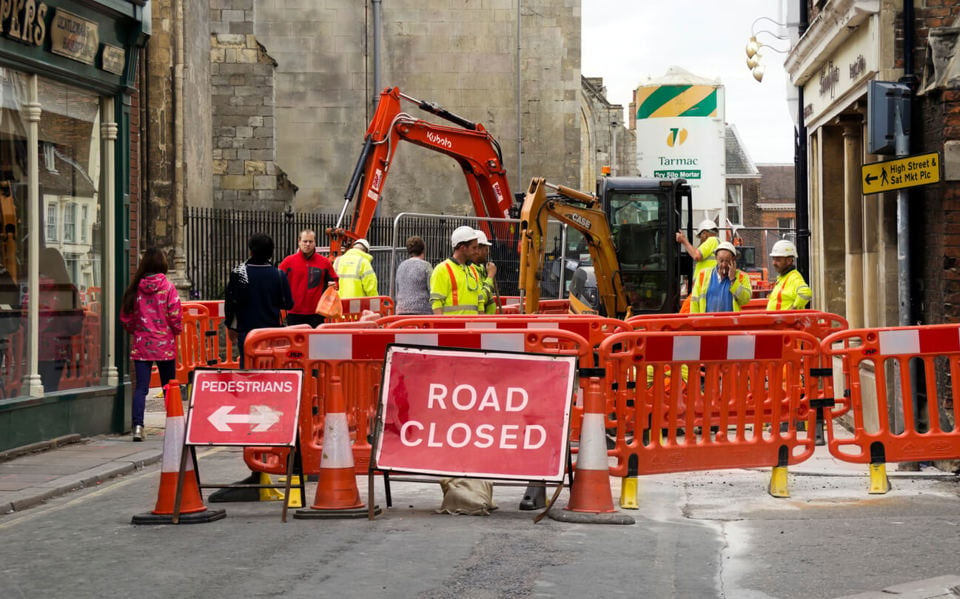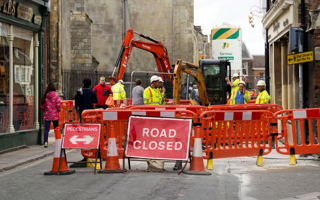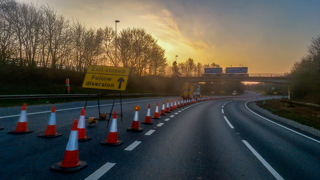New powers should be given to local authorities to limit disruption and congestion caused by street works, according to the Transport Committee.
Around 2.2 million street and road works were carried out in England between April 2023 and March 2024, with more than 200 different organisations having the right to dig up roads.
‘Street works’ typically refers to when utility companies dig up roads to install or repair pipes and cables for gas, water, electricity and broadband. The term is different to ‘road works’ where workers are maintaining roads such as by filling potholes.
The Transport Committee says that more street works will be needed to meet Government objectives on new housing developments and installing electric vehicle (EV) infrastructure.
In many cases, some level of disruption is unavoidable when street works need to be carried out to keep services running, with disruption felt by all road users, it says.
But MPs on the committee heard overwhelming evidence from local authorities during an inquiry that the current regulatory regime leaves them ill-equipped to monitor and coordinate utility companies’ street works, or to penalise companies that behave badly.
In a report published today (Thursday, July 3) – ‘Managing the impact of street works’ – the cross-party committee calls for tighter controls on the use of ‘immediate’ or ‘urgent’ permits which allow utility companies to bypass local authorities before they start, and guarantees that an excavated road will then be reinstated to a high standard.
MPs are also calling for the Government to let all local highway authorities adopt ‘lane rental schemes’.
Under these schemes, utility companies pay a charge for each day that works are carried out on a road – incentivising efficiency.
The inquiry leading up to this report heard that if roads are reinstated to a poor standard following street works, it increases the chances of cracks and potholes appearing later on, and councils being left to put things right with yet more road works.
Transport Committee chair, Ruth Cadbury, said: “Street works are essential. Ageing infrastructure inevitably needs maintaining, and new cables and pipes will need laying as more housing is built across the country.
“But as every road user knows, street works can feel like a recurring nightmare. The complaints are all too familiar: temporary traffic lights appearing overnight on a road that was already dug up a few months ago, sites left unattended on weekends, works dragging on longer than promised, lorries diverted down roads too small for them, and disabled people often unable to negotiate their way around the site safely.
“People are often left wondering, ‘why does the council let this happen?’.”
Cadbury says that she also heard from site workers who too often face the “wrath of the travelling public”.
“Our report sets out a shopping list of small changes that could make a huge difference, sharpening the teeth of the regulations that already exist while also providing incentives to for utility companies to work efficiently and coordinate their work with councils,” she added.
“Upping the quality of reinstatement works will help stem the never-ending plague of potholes on local roads.
“Lane rental schemes should provide a financial incentive to complete works on time. And longer-term planning and earlier notification should help councils prevent the infuriating occurrence of multiple roads being closed in one locality, or the same road being dug up multiple times in one year.”
Commenting on the report into street works, Jack Cousens, head of roads policy at the AA, said that street works are a “necessary evil”.
However, he added: “It is clear that more cooperation and coordination is needed to reduce disruption to the road network.
“Utilities companies should be held accountable if they hand the road back to the council in a poor state of repair and be forced to fix their mistake.
“Similarly, lane rental schemes help focus the minds of those wishing to dig up streets to ensure they complete works in a timely manner.
“Congestion caused by street works is a major issue, especially on local roads as it hampers both traffic flow and local economies - tackling this problem is long overdue.”




















Login to comment
Comments
No comments have been made yet.